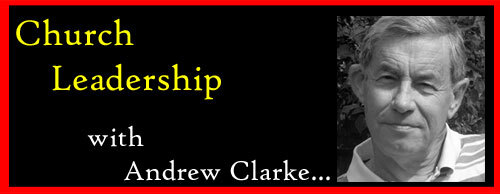
432.4K
Downloads
3359
Episodes
G’day and welcome to Partakers Christian Podcasts! Join us for uplifting Bible teaching, inspiring readings, heartfelt worship, powerful prayers, and fascinating church history. Whether you’re new to faith or growing deeper in your journey, we’re here to encourage and equip you. 🎧 Tune in, interact, and be inspired—wherever you are in the world.
G’day and welcome to Partakers Christian Podcasts! Join us for uplifting Bible teaching, inspiring readings, heartfelt worship, powerful prayers, and fascinating church history. Whether you’re new to faith or growing deeper in your journey, we’re here to encourage and equip you. 🎧 Tune in, interact, and be inspired—wherever you are in the world.
Episodes

Monday Sep 16, 2024
Church Leadership 06 - New Testament Leadership Part 2
Monday Sep 16, 2024
Monday Sep 16, 2024

Church Leadership
Session 5:
What does the New Testament tell us about what characteristics we should expect from a church leader”
Part 2
We come across the concept of deacons first in the New Testament in Acts 6 when seven men were chosen to fulfil some of the practical aspects of church leadership, leaving the apostles free to “give [their] attention to prayer and the ministry of the Word” (Acts 6:4). These seven were to be those who were “known to be full of the Spirit and wisdom” (Acts 6:3).
In 1 Timothy 3, Paul sets a standard for deacons which is similar to that for elders with a few variances (there is no ‘apt to teach’ for example). Again it is about being ‘worthy of respect’, which implies a bearing and lifestyle that is recognised by those inside and outside the church to be exemplary.
Paul includes women here (3:11) – some translations have ‘their wives’ which suggests that a deacon’s wife has to be tested against the criteria set down here (they speak prudently with control, do not drink to excess and are trustworthy). This seems a bit odd on the basis that there is no such test for elders’ wives which one would have expected. Probably a better understanding is that both men and women were eligible for the role – but that is confused by verse 12 (the ‘one woman man’ requirement) because there is no requirement for the deaconess to be a ‘one man woman’. Some sections of the Christian church bar women from all leadership roles – and some embrace them at all levels – and the debate between the two has caused much heartache and still goes on in many parts of the Church.
Timothy’s own leadership of the church depends on maintaining ‘faith and a good conscience’ (1:19) – but even for deacons, whose tasks were probably must less high profile and practical – these are equally vital qualities. The Christian faith is a ‘mystery’ (v.9 – some translations have ‘deep truths’) – not in our English sense that it is something hard to understand – but rather as a secret, available only to those who are let in on it. Deacons are those who have discovered for themselves the secret of God’s grace through Christ – and now hold it fast as the basis of their life and teaching. The ‘clear conscience’ (3:9) is as important as the grasp of the truth ‘by faith’.
Just as elders must be mature Christians, so also deacons must be tested before their ministry is approved. The testing Paul refers to here is probably on the job training with other church leaders – and, as they seem to be doing well, they will be given further responsibility. And, just as the role of elder is a ‘noble task’ – so good service as a deacon brings ‘good standing’ and ‘great boldness in the faith’ (3:12). Jesus taught that those who wish to be first among His disciples must be servant of all (Mark 9:35) – and that scale of values is reflected here. Honour is to be found not by aiming for high profile positions but by doing a good job in the role to which you have been called.
My own experience in my early days in church leadership (now over 45 years ago) supports Paul’s promise in the latter part of verse 13. During that time my own faith grew stronger and I was assured of what I believed – almost imperceptibly. Faithful service always brings its rewards.
Paul’s instructions to Timothy about the selection of leaders is full of good sense and assures, if followed, that the church is in good, safe hands. History, including recent history, records many examples of inappropriate leadership that damages the credibility of the gospel to outsiders. I want to answer the question: “What happens when it goes wrong?” in a future session.
But let all of us take note of the standards set for Christian living. We all – not just those in leadership - have a duty to live our lives in such a way as to honour God and not damage the witness of the church and hinder the proclamation of the gospel. This is not about “look how pious they are” – but rather “look at the quality of their lives – I want to live like that” and so commend the gospel and the change that the grace of God can bring in people’s lives.
It is only by the grace of God and the empowering of the Holy Spirit that leaders can function well. But to be able to serve faithfully and in an exemplary manner they need our prayers and for us to recognise that they are not perfect and are still growing in that grace. The Preacher to the Hebrews puts it in better words than I can (Hebrews 13: 7-18):
Next time I want to take two examples from the New Testament – Timothy as a leader and Stephen as a deacon – and see what we can learn from them.
A prayer: “Father, thank you for the truths of Your Word and thank you for those who teach us those truths. And thank you for those who service in our church in practical ways – may they “have great assurance in their faith in Christ Jesus. In Jesus Name. Amen.”

No comments yet. Be the first to say something!